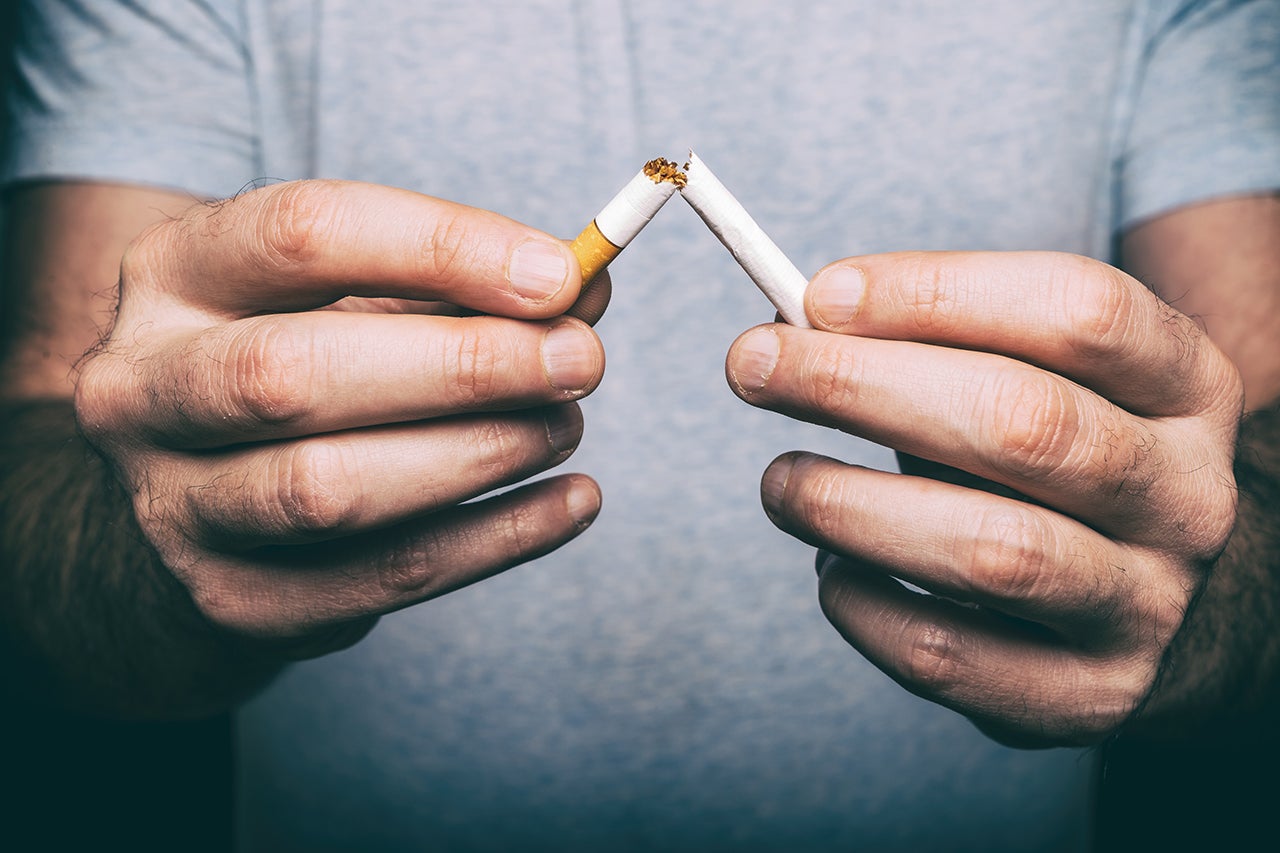For more than two years, the College of Charleston has been tobacco-free. It’s appropriate to mention that because today – Thursday, Nov. 17, 2016 – is the Great American Smoke Out.
Recognized annually on the third Thursday of November, this day of awareness was developed by the American Cancer Society to emphasize the many benefits of not smoking or using tobacco and to encourage current users to give up the habit. Among those benefits is a more healthy learning environment.
 “That’s effectively what our campus policy is about,” explains Rachael McNamara ’00, health educator in the College’s Office of Counseling and Substance Abuse. “It covers all areas of campus, including our satellite locations and all forms of tobacco. The overarching reason we have it in place is because healthy learning environments – and healthy students – are much more conducive to academic success.”
“That’s effectively what our campus policy is about,” explains Rachael McNamara ’00, health educator in the College’s Office of Counseling and Substance Abuse. “It covers all areas of campus, including our satellite locations and all forms of tobacco. The overarching reason we have it in place is because healthy learning environments – and healthy students – are much more conducive to academic success.”
As a tobacco-free institution, the College is in good company. Of the more than 4,100 colleges and universities across the U.S., 1,713 of them are smoke-free, and 1,427 of those are wholly tobacco free. At the College, tobacco-free means no form of tobacco can be used, including chewing tobacco, e-cigarettes, cigars, hookahs, vapes or other nicotine-delivery devices.
According to the Centers for Disease Control, about 40 million Americans smoke or use tobacco. But use among college students is on the decline, says McNamara. “The American College Health Assessment from the spring of this year indicates that 76 percent of college students reported not having used cigarettes over the previous 30 days, and 85 percent say they didn’t use e-cigarettes while 77 percent reported that about water pipes. For cigarettes, those figures represent a significant improvement over the same metric from 2014.”
McNamara also points to anecdotal evidence that indicates the College’s tobacco-free policy has been a success. “Over the past several years, I’ve noticed that students place more importance on physical and mental health,” she says. “They seem to recognize that their academic pursuits are best achieved when their minds and bodies are working together. I’ve been impressed by the number of students who’ve voiced support and gratitude for the policy.”
McNamara says that quitting tobacco use can have a significantly beneficial effect on a person’s immune system and their long-term health as well, and she hears this first-hand from students who’ve kicked the habit. “This fall, a senior told me that he was angry when the policy first went into effect, but he said that he has since quit smoking and can’t believe how much better he feels. I also work with many student volunteers who’ve told me about their tough struggles quitting and how they now appreciate the effort that so many people have made to stop or reduce on campus tobacco use.”
For students, faculty and staff who’d like to quit, there are a number of useful resources listed on the College’s tobacco-free website. Students can also visit the Office of Counseling and Substance Abuse to get advice on quitting, McNamara says. “We know it’s not easy, but it’s definitely worthwhile.”





